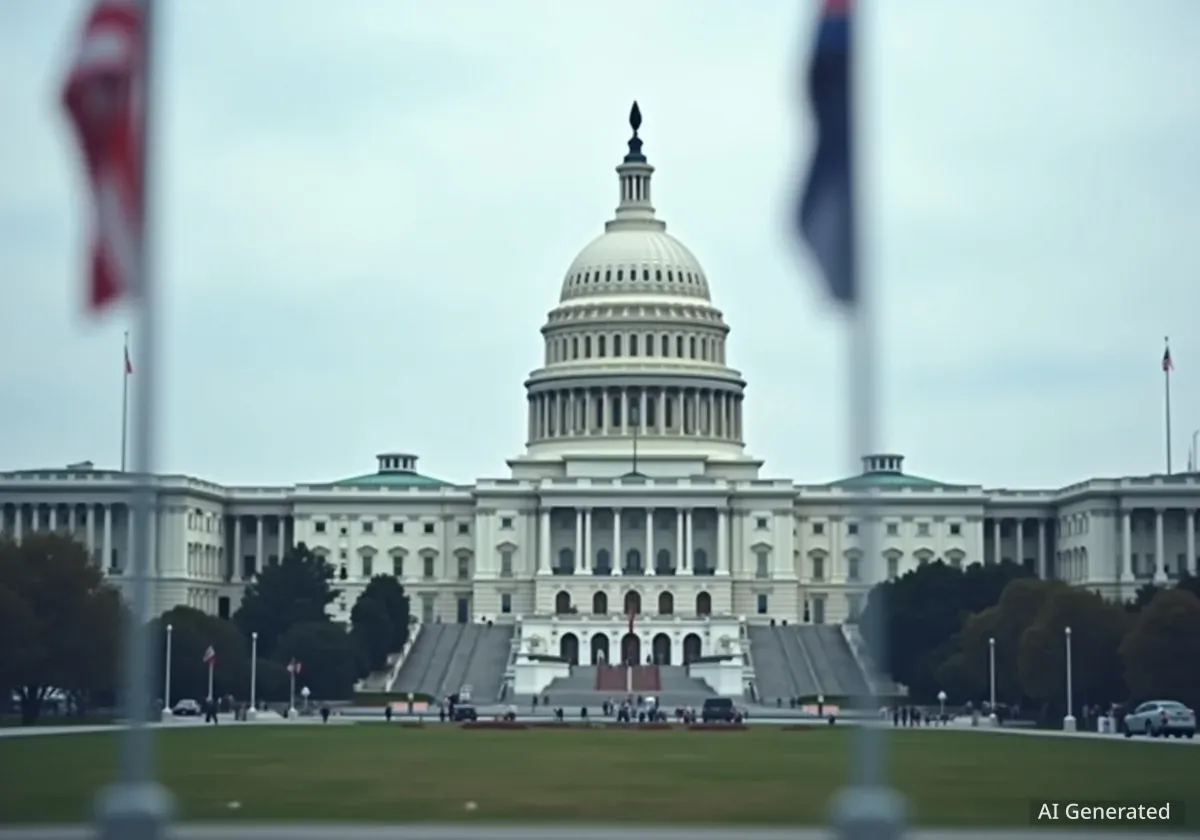Former President Donald Trump has announced that the permanent headquarters for U.S. Space Command will be moved to Huntsville, Alabama. This decision reverses a 2023 directive from the Biden administration that had finalized Colorado Springs, Colorado, as the command's long-term location.
The relocation revives a plan first initiated during the Trump administration. The move is framed as a strategic decision intended to improve military readiness and operational efficiency in the space domain, an area of increasing competition with nations like China and Russia.
Key Takeaways
- Donald Trump announced the U.S. Space Command headquarters will move from Colorado Springs, Colorado, to Huntsville, Alabama.
- The decision overturns a 2023 choice by the Biden administration to keep the headquarters in Colorado.
- Official reasons for the move include lower costs, better infrastructure synergy, and improved military readiness.
- The relocation is expected to bring thousands of jobs to Huntsville but has raised concerns about economic impact in Colorado.
- The process is projected to take several years and cost over $1 billion to complete.
A Change in U.S. Space Policy Direction
The location of the U.S. Space Command headquarters has been a subject of ongoing debate since its re-establishment in 2019. The command was initially based temporarily in Colorado Springs while the Department of Defense conducted a search for a permanent home.
In the final days of the Trump administration, Huntsville was selected as the preferred site. However, President Joe Biden reversed this choice in 2023, citing concerns from military leaders that a move could disrupt readiness. The new announcement by Trump sets the relocation plan back in motion, creating a notable policy shift between administrations.
Background of the Decision
U.S. Space Command is responsible for military operations in outer space. Its location is strategically important for national security, coordinating satellite operations, missile defense, and intelligence gathering. The debate over its headquarters involves factors like cost, existing infrastructure, workforce availability, and political considerations.
The Case for Relocating to Huntsville
Supporters of the move to Alabama point to several strategic and financial advantages. Huntsville is already a major hub for the U.S. aerospace and defense industry, hosting NASA’s Marshall Space Flight Center and the Army's missile defense programs.
Cost and Efficiency Arguments
According to government assessments, moving the headquarters to Huntsville could result in significant long-term cost savings for taxpayers. The Government Accountability Office (GAO) previously identified Alabama as the most suitable location based on criteria that included infrastructure and cost-effectiveness.
"This decision is based on what is best for the warfighter, national security, and the American taxpayer," a defense official stated in a related briefing.
The proximity to Redstone Arsenal in Huntsville offers synergy with existing military and space-related facilities. This co-location is expected to streamline operations and enhance collaboration between different branches of the armed forces involved in space and missile defense.
Huntsville's Aerospace Ecosystem
Huntsville, often called "Rocket City," has a deep history in American space exploration and defense. It is home to a large concentration of engineers and technical experts, as well as major defense contractors like Boeing and Lockheed Martin. This established ecosystem is considered a key asset for supporting Space Command's mission.
Economic and Political Implications
The relocation of a major military command carries significant economic consequences for both states involved. For Huntsville, the move represents a major economic development opportunity, promising an influx of thousands of military personnel, civilian employees, and contractors.
Conversely, Colorado officials have expressed concerns about the economic impact of losing the headquarters. The state has a well-established aerospace economy, and the presence of Space Command has contributed to job growth and investment in the Colorado Springs area.
Political Controversy Surrounding the Move
The decision has not been without political friction. Critics, including some Democratic lawmakers, argue that the move is politically motivated. Colorado Senator Michael Bennet has been a vocal opponent, emphasizing Colorado's existing infrastructure and experienced workforce.
During his announcement, Trump also made comments critical of Colorado's mail-in voting system. However, defense officials maintain that the recommendation for Huntsville is based on objective operational and financial assessments rather than political factors.
Challenges of Implementation and National Security
Executing the relocation of a critical military command is a complex and expensive undertaking. Pentagon officials have estimated that the transition could take several years to complete and may cost more than $1 billion. The process involves constructing new facilities, transferring sensitive equipment, and relocating thousands of personnel and their families.
Ensuring Operational Continuity
A primary concern during the transition will be maintaining the seamless operation of Space Command. The command is vital for daily national security, and any disruption could create vulnerabilities. Military planners will need to develop a detailed strategy to ensure that its critical missions continue without interruption during the multi-year move.
The decision also comes as the United States faces growing challenges in space. Both China and Russia have been advancing their space capabilities, including the development of anti-satellite weapons. Proponents of the move to Huntsville argue that centralizing command operations there will ultimately strengthen the U.S. posture against these threats.
Ultimately, the success of the relocation will be measured by its impact on U.S. military readiness and its ability to effectively counter emerging threats in the increasingly contested domain of space.





